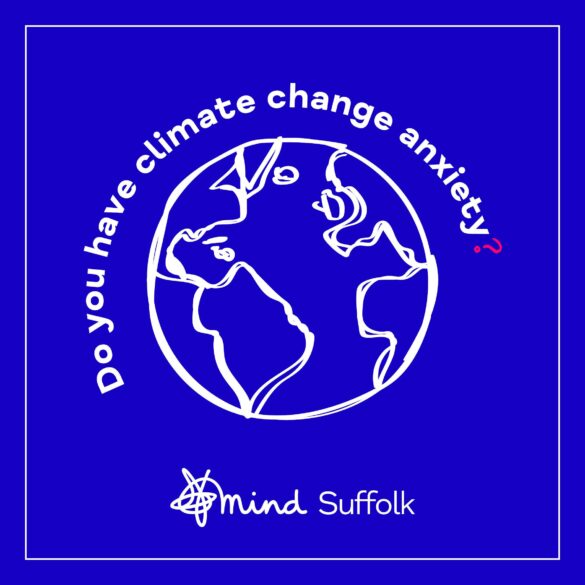What is anxiety?
Anxiety is an emotion, like sadness or happiness, anger and fear. It is a response to not feeling safe or feeling uncertain about things which affect us.
We need anxiety to react to potentially dangerous situations and switch on our fight or flight response.
However, strong feelings of anxiety, particularly over an extended period of time, can override our ability to think clearly and can lead to depression.
Here, Ezra Hewing, Head of Mental Health Education at Suffolk Mind, looks at ways we can reduce our anxiety and improve our mental health.
What is anxiety?
When we feel anxious, we may experience physical reactions including our heart rate lifting, knots in our tummy, our palms beginning to sweat and changes in our breathing patterns.
It can occur very quickly, so could be a reaction to a single event.
However, when someone experiences stress over a period of time it can give rise to anxiety.
Anxiety is useful as its function is to try and predict the future, to prevent things going wrong and guide us in avoiding dangers and threats – it’s there to keep us safe.
But too much anxiety is unhelpful.
If it persists over time, it can often affect our daily life and affect the quality of sleep.
It can also cause people to look for threats and interpret events in a negative manner when there’s no reason to do so.
It’s natural to feel some anxiety for short periods or in response to something in our life such as exams or moving house. However, a constant state of increased heart rate, finding it difficult to breathe, unable to sleep, focus or concentrate are all signs we are experiencing an unhealthy degree of anxiety and we need some support.
What causes it?
Not meeting your emotional needs is the root cause of anxiety.
If your emotional needs are reasonably well met you are likely to be calm and able to cope with whatever gets thrown at you.
If not, nature will let you know you need to do something about it.
For more information about 12 emotional needs, visit Emotional Needs & Resources.
How to reduce anxiety
To help reduce our anxiety we need to do three things.
First, we need to look at the environments we work, rest and play in.
If there are things in the environment that make us feel unsafe, threatened or in danger, or not in control of events, it can make us feel anxious.
In that case, we need to either change the environment, or leave it.
The second thing we can do is learn skills to reduce stress levels and get a better handle on anxiety.
This could be learning breathing exercises such as 7/11 breathing or to learn how to spot negative thoughts and reframe them.
Anxiety can often be a similar feeling to excitement, so framing it that way can help.
Third, if there is a trauma or phobia causing anxiety, then you may need an intervention from a skilled therapist.
That might include EMDR or at Suffolk Mind we recommend a technique called Rewind, which must be conducted by a skilled professional.
If you need advice or help with anxiety, contact Suffolk Mind on 0300 111 6000 or email info@suffolkmind.org.uk











